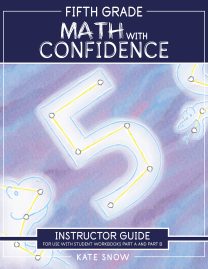
“Oh, the world is so full of a number of things…”
Robert Louis Stevenson said it first, but it’s as true of home education as of nature: there are more subjects, curricula options, projects, workbooks, great books, fun books, maps, Internet sites, and research opportunities out there than you will ever cover.
Once you’ve gotten into a pattern of completing your core subjects, you can start to add in fun electives. Just remember that you won’t ever add them all–and be sure not to overcrowd your schedule. (Children need time to be idle.)
“Non-core” doesn’t mean “unimportant.” It just means “secondary” to the vital core areas. So get those core areas running smoothly first, and then start contemplating the non-core subjects.
What subjects are “non-core”? Well, among them are…
- Physical education
- Logic
- Foreign language
- Vocabulary
- Study skills
- Fine arts: music, visual arts, crafts
- Practical arts: shop; accounting; sewing and other fabric/yarn arts; technology; keyboarding; cooking
All of these are worthwhile subjects that can round out your child’s school year. Just remember that they come after the core subjects–and that you must pick and choose among them (rather than trying to complete a representative smattering of all).
Recommended Products
-

Juneteenth Booklist & Activities
0 out of 5$0.00 Add to cart -


Fifth Grade Math with Confidence Instructor Guide
0 out of 5Starting at:$36.95Original price was: $36.95.$27.71Current price is: $27.71. Select options -
Sale!

Hansel & Gretel and Other Stories: Downloadable MP3
0 out of 5$12.95Original price was: $12.95.$9.71Current price is: $9.71. Add to cart -
Sale!

Dorothy and the Wizard in Oz: Downloadable MP3
0 out of 5$25.95Original price was: $25.95.$19.46Current price is: $19.46. Add to cart -
 Sale!
Sale!

Fifth Grade Math with Confidence Student Workbook B
0 out of 5$16.46 – $21.56 Select options This product has multiple variants. The options may be chosen on the product page -
 Sale!
Sale!

Fifth Grade Math with Confidence Student Workbook A
0 out of 5$16.46 – $21.56 Select options This product has multiple variants. The options may be chosen on the product page
ABOUT THE AUTHOR
Well-Trained Mind Press Staff
Join over 100,000 homeschooling families
For the latest offers, educational insights, products and more.
By joining you agree to our privacy policy.


















4 thoughts on “What Are the “Non-Core” Subjects?”
Music iIS a core subject in the U.S.!
How many none core classes does my middle student need to take per semester online?
With middle-school students, there’s no one rule/standard, because their transcripts and credits don’t really start “counting” or “mattering” as much until they start 9th grade (high school). Your local school board or your state’s Education Department may have guidelines.
I found this post really insightful! Understanding what “non-core” subjects are helps in prioritizing our children’s education. It’s great to see the emphasis on a well-rounded education that goes beyond traditional subjects. I’m particularly interested in how these non-core subjects can enhance critical thinking and creativity in kids. Thanks for sharing!